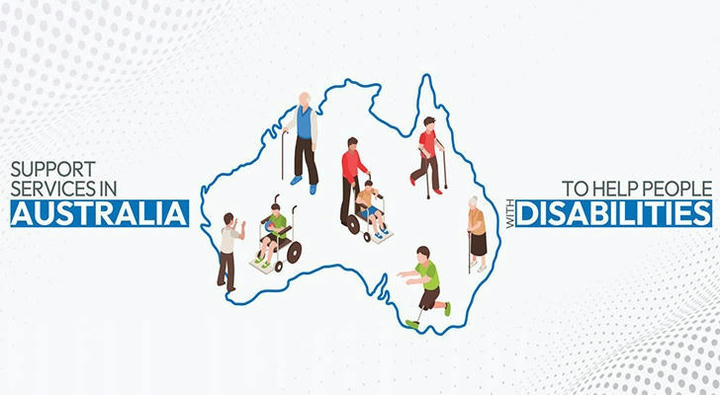A Complete Guide to Australian Disability Support Worker Courses and Stable Employment
The demand for disability support workers across Australia continues to surge, driven by the growing need for specialised care among individuals with disabilities. To meet this increasing demand, a variety of training programs are available, offered by government, TAFE providers, and private registered training organisations. These courses are designed to equip aspiring disability support workers with the essential skills and nationally recognised qualifications necessary for a fulfilling career.
This guide explores the available courses, career opportunities, and pathways to stable employment in the disability support sector.

Career Opportunities in the Disability Support Sector
Disability support workers in Australia can find employment across diverse settings, including community care, residential facilities, and private homes. Common roles include Disability Support Worker, Residential Support Worker, NDIS Worker, and Community Care Worker. The sector is characterised by flexible working arrangements, including full-time, part-time, and contract positions.
With a significant skills shortage in disability and aged care, employment prospects are robust nationwide. The sector is expected to witness sustained growth as the population ages and demand for personalised disability services rises. This creates long-term career stability and advancement opportunities for qualified disability support workers.
Australian Disability Support Worker Courses Overview
TAFE NSW offers six certificate-level individual support courses geared toward building foundational knowledge and practical skills for community care roles. These include:
Certificate III in Individual Support (Disability) (CHC33021-03): Focuses on providing client-centred support to enable individuals with disabilities to engage with their communities and achieve personal goals. Suitable for roles such as disability support worker, accommodation support worker, and respite worker.
Certificate III in Individual Support (Ageing and Disability) (CHC33021-04): Prepares students to support both aged and disabled clients, with career pathways including aged care worker and residential support worker.
Certificate IV in Disability Support (CHC43121-01): Builds on Certificate III qualifications, empowering students to support people with disabilities to gain independence and improve quality of life. Entry requires prior completion of Certificate III in Individual Support (Disability).
Certificate IV in Ageing Support (CHC43015-01): Designed for those aiming to take leadership roles in aged care settings, providing advanced sector knowledge and leadership skills.
Certificate IV in Leisure and Health (CHC43415-01): Focuses on delivering health and leisure activities for aged care clients, enhancing quality of life.
These courses are delivered face-to-face with flexible full-time or part-time study options, offering interactive and immersive learning experiences suitable for those passionate about helping others.
Course Details: Certificate III in Individual Support (Disability)
A popular entry-level course, the Certificate III in Individual Support (Disability) equips students with practical skills through a combination of classroom learning and mandatory work placements. For example, at TAFE NSW’s The Hills College, Castle Hill Campus, this full-time course spans approximately four months, requiring around 20 hours of class time weekly plus additional study and work placement hours.
Assessments include practical demonstrations, written knowledge tests, case studies, and workplace projects. A compulsory 120-hour work placement ensures real-world experience, essential for skill development and employment readiness.
The course includes 15 units of competency covering core skills such as supporting independence, ethical work practices, infection control, and communication, alongside specialised units focusing on person-centred behaviour support, first aid, and community participation.
How to Enrol and Entry Requirements
Many disability support courses, including those at TAFE NSW, do not have stringent entry requirements, making them accessible to a broad range of applicants. Prospective students can enrol directly through provider websites after reviewing course details and confirming eligibility.
Support services are widely available, including counselling, study assistance, and guidance with job placement. These services enhance student success and transition into employment.
Employment Stability and Career Progression
The disability support sector offers a stable career path with numerous opportunities for advancement. As the demand for qualified workers grows, so do prospects for leadership roles, specialised positions, and increased remuneration.
Career pathways include becoming team leaders in aged care, program facilitators, or behavioural support practitioners. The sector values experience and continued professional development, providing a supportive environment for long-term career growth.
Conclusion
Pursuing disability support worker qualifications in Australia opens doors to a meaningful and stable career. Whether through TAFE, government-supported initiatives, or private training organisations, these nationally recognised courses provide the skills, practical experience, and industry connections needed to thrive in a high-demand sector. With flexible learning options and supportive services, gaining a qualification in disability support is accessible for many and leads to rewarding employment opportunities that make a real difference in people’s lives.
